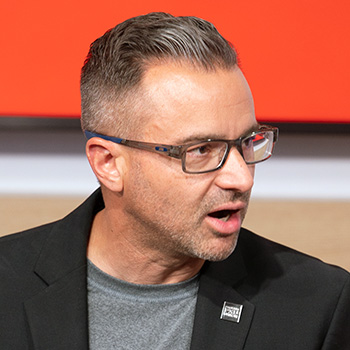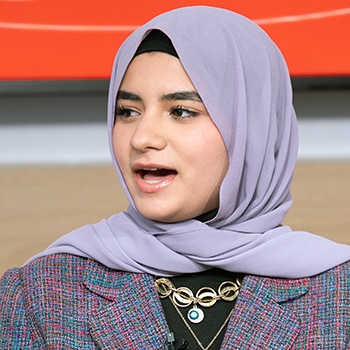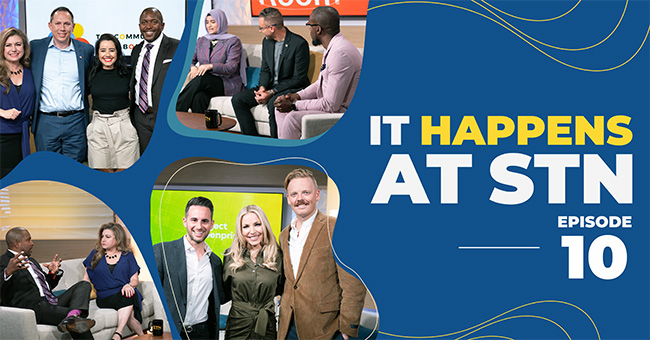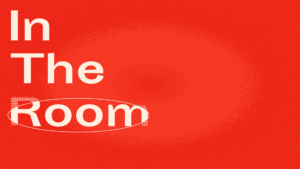Over the course of the premiere season of It Happens at STN, In the Room hosts Lloyd Hopkins and Stephanie Parra have often welcomed guests to talk about teens and mental health; whether it be a conversation focused on the dangers of social media or the importance of staying active and enjoying the outdoors.
Now, in the season finale, Parra and Hopkins are joined by the Outgoing Superintendent of the Phoenix Union High School District Dr. Chad Gestson and Central High School student Zahraa Alfatlawi to get a better understanding of how schools, parents, and teens, can collaborate to foster change when it comes to mental health and what it looks like when it works.
Watch the In the Room Action Panel
Action Panelists
Action Panelists
Dr. Chad Gestson
Outgoing Principal – Phoenix Union High School District
Zahraa Alfatlawi
Student – Central High School

Mental Focus
We’re in the business of educating children. At the end of the day, our job is your achievement. You’re going off to college. We can’t get to achievement if we first don’t start with wellness. And today, for some reason, we’ve politicized and there’s rhetoric around mental health and all things social [and] emotional in schools, and we have to be unapologetic about our commitment to youth mental health and youth wellness.
What we know is this is an incredible generation. And it’s a generation that needs our help. It needs our love, it needs our support. What we’ve seen in Phoenix Union is when we can build healthy children, we start to build healthy results.
Moving On
I’m really proud of the work of Phoenix Union. We’ve worked really hard. I’ve been there for 14 years, eight years as superintendent. It’s tough to leave. But this generation is going to continue to lead. And Phoenix Union is going to continue to lead.
I do know there’s really important statewide and nationwide work that we really have to do to put education, to put children, to put solutions, on the table. Next year, I will be the founder of the Arizona Institute for Education and the Economy. The idea of the institute has a few parts of this bold vision.
We know that education, economy, [and] workforce are all connected, but we don’t often work together enough to drive those outcomes. So that’s one primary focus.
Distribution Discussion
I think what’s just as important is that the Institute is founded upon the belief that talent and potential are equally distributed. [It] does not matter what zip code, what your primary language is, what your family income is, maybe even your country of origin, that does not matter. Talent is equally distributed. The problem today in Arizona, and across the country, is that resources, opportunity and access are not.
We have to start to drive solutions into communities and into schools and into districts that will really start to create outcomes. Not just educational outcomes, but economic and social mobility.
Building a Foundation
In year one of the institute, one of the primary goals is that we’re going to truly start to create broader urgency around some of the issues that exist in education: mental health challenges, achievement gaps, opportunity gaps. The gaps were wide. Unfortunately, they’re wider than they’ve ever been.
We have an educator workforce crisis that is coming. And, again, the disparities in our communities, unfortunately, are getting bigger, not smaller. We have to create urgency, but then ultimately we have to get to solutions. The institute will look at policy practice and investments that we plan to drive educational and economic outcomes.

From an Early Age
My passion started at home. I grew up with a single mom and we’re a close-knit American Muslim family. My mom really emphasized giving back and helping others. I remember when we had a yard sale, my mom bought food for all of our customers, and I was like, “Mom, you just wasted all of our profits.” But seeing that and growing up with that type of hospitality, I knew that was going to be what I wanted to do with my life and going into high school.
School Struggles
So every single day I see my peers struggling with mental health, physical health, because it’s all coordinated and related and, you know, we kind of had a little pandemic. So that definitely escalated things. Students were so disconnected from not only their peers but from other students.
I think a misconception with our generation is that we don’t want to learn. We could be lazy. But, in reality, there is so much passion in a classroom. It just has to be ignited. You have to have someone that can tell you “You can do it. You can do more than you think. Your voice matters.”
Safe Space
Once we got out of COVID, students need to have a space where they feel safe and comfortable. So I started Zen Den, which is my school’s first mental health and wellness club. It’s aimed at providing support and comfort to students but also spreading positivity on campus in general. We wanted to take our close-knit club community and really broadcast that to our entire school. So we’ve collaborated with mental health organizations like Teen Lifeline, Quail Run, Behavioral Health, and we collaborate with our student organizations, like our marketing program and our swap program, to allow students to feel better.
My biggest goal after every meeting is that people walk out feeling better, even if a meeting is chaotic and everyone is yelling and there are freshmen, and it’s just crazy. That is a successful meeting to me because everyone is smiling and happy.
I think a lot of things go on at home and with students’ own emotional well-being. Just having a space to feel comfortable and just laugh is a game changer.
I remember one time I couldn’t make a meeting. I was out sick and I told them, “Oh, we can just cancel next week.” And they’re like, “No, no, no, we’ll still have a meeting. We’ll go do a meeting at a park.” And they all got together and they had a meeting. So it just showed me that everyone is there that wants to be there.
Getting Started
You just gotta do it. You just have to make the first step in starting it. When I first started Zen Den, it was just an idea to me. I spoke about it with a teacher and she was like, “Just start it”. And I was like, “Oh, that, that’s how it works.”
I talked to some other people and we got paperwork approved and now I’m here. So you just have to start it, find that motivation. Don’t let anybody stop you because your voice matters so much. You could be so unstoppable if you just believe in yourself, even if no one believes in you. If you have true belief in yourself, then nothing else matters.




